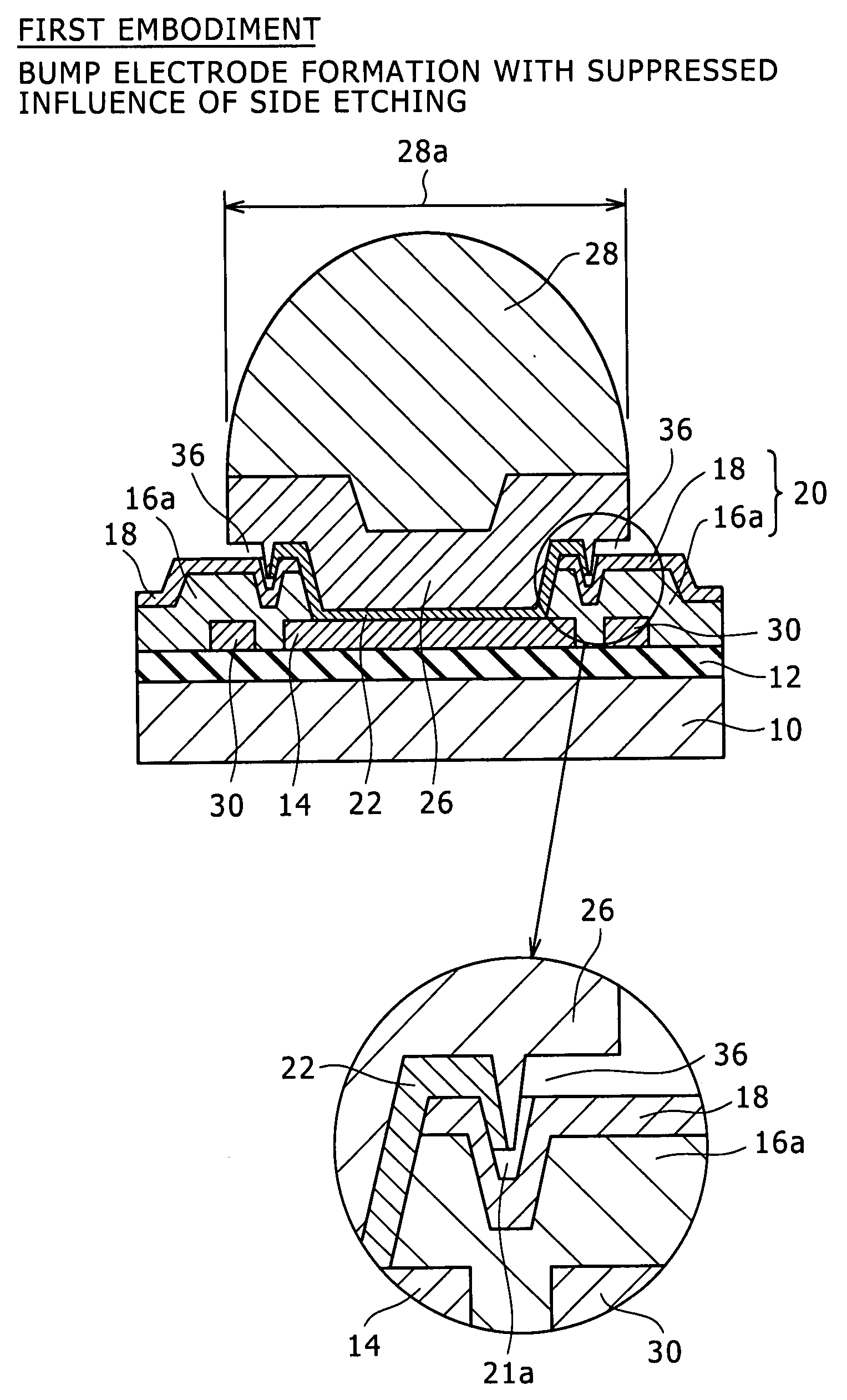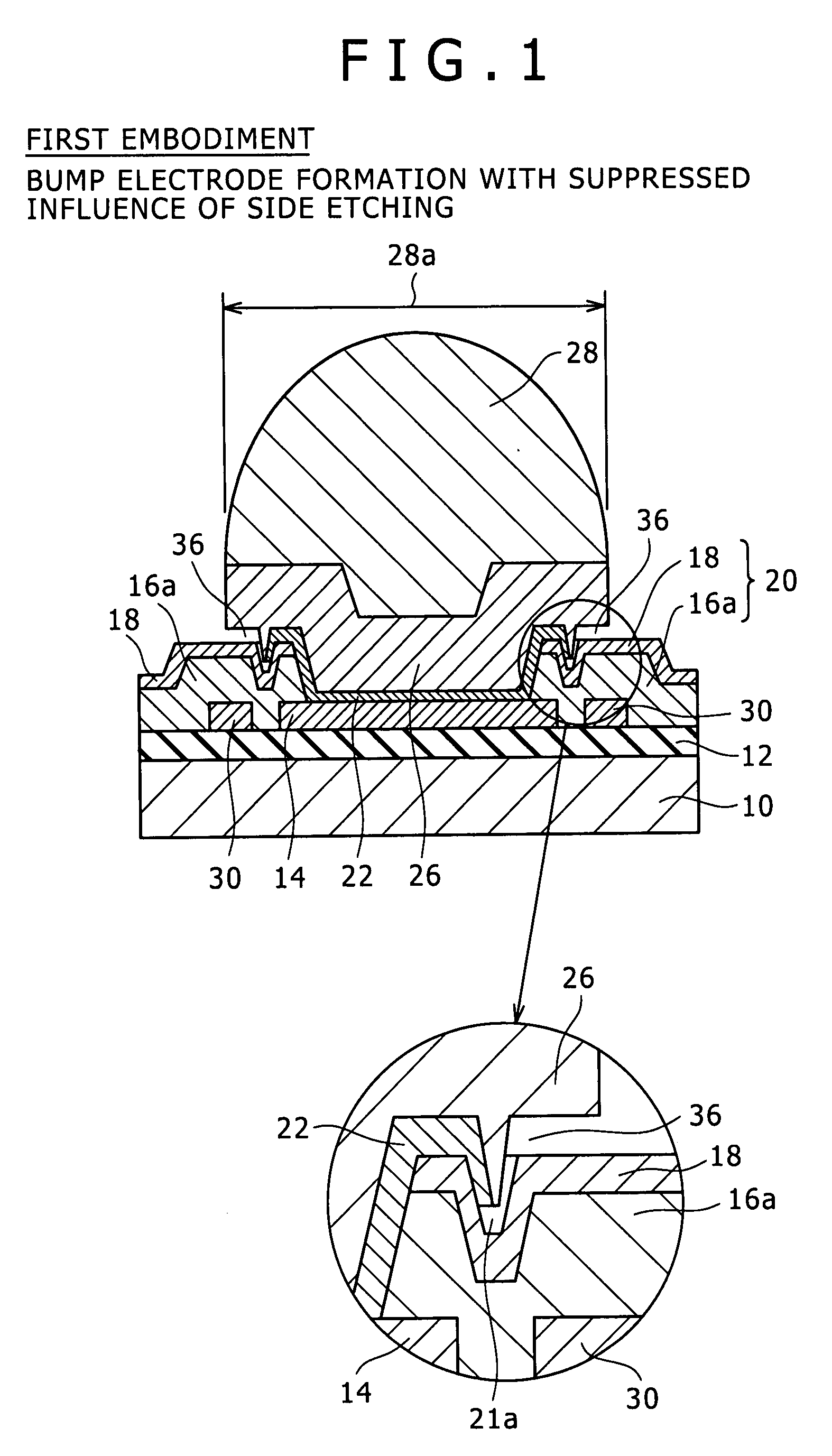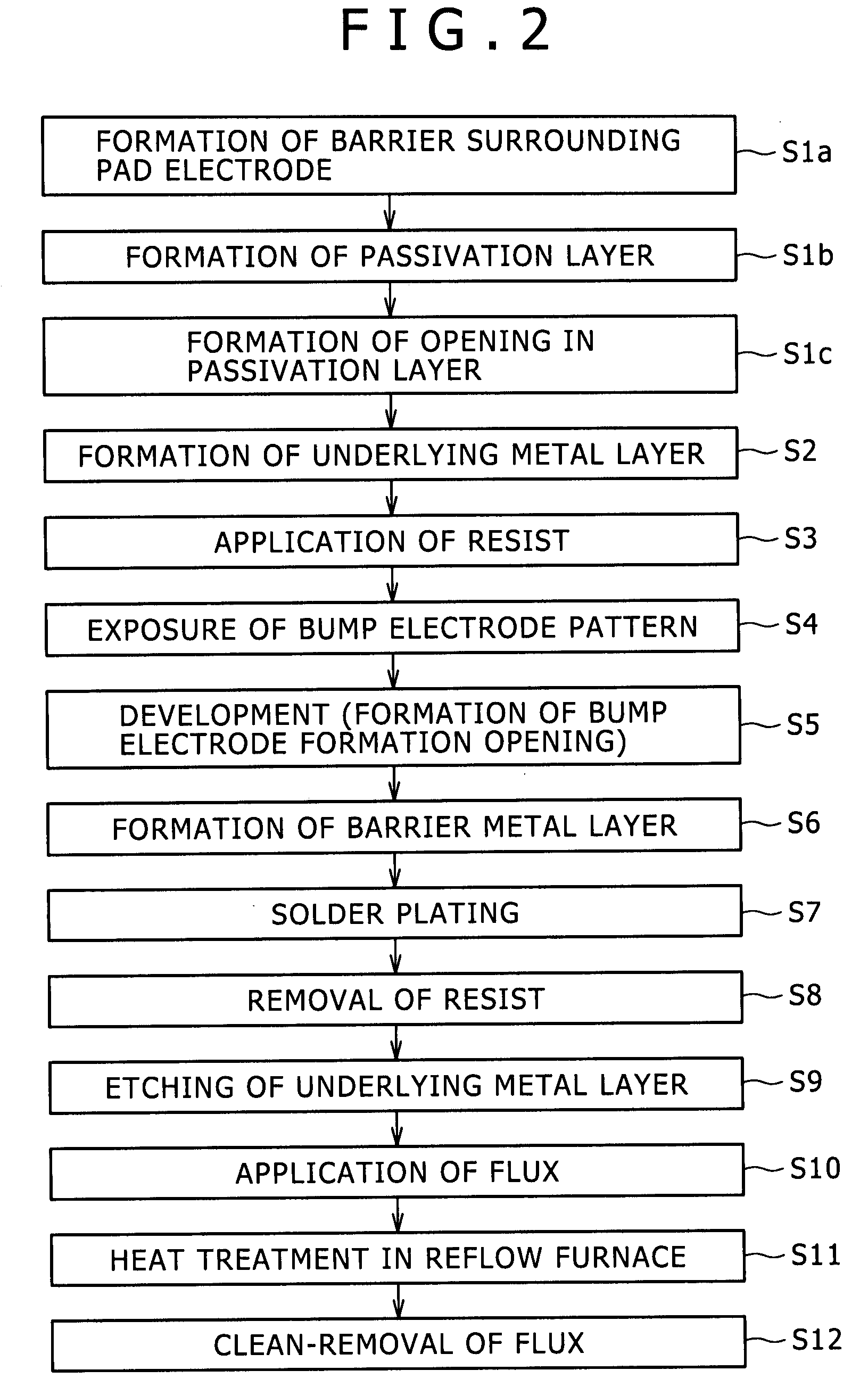Electronic component, semiconductor device employing same, and method for manufacturing electronic component
a semiconductor device and electronic component technology, applied in the field of electronic components, can solve the problems of increasing the mounting area and cost, lowering the yield, and increasing the bonding strength between the bump electrode and the semiconductor substrate, so as to reduce the area of the underlying metal layer formed under the external connection electrode, reduce the bonding area, and reduce the bonding strength
- Summary
- Abstract
- Description
- Claims
- Application Information
AI Technical Summary
Benefits of technology
Problems solved by technology
Method used
Image
Examples
first embodiment
[0081]In a first embodiment of the present invention, a ring barrier 30 surrounding a pad electrode 14 is formed, and a bump electrode (protruding electrode) is formed above the pad electrode and the barrier. The barrier is to increase the length and area of the continuous part of an underlying metal layer and to suppress the influence of the occurrence of side etching, similarly to the respective subsequent embodiments. The form of the barrier formation differs among the following respective embodiments, and will be explained in detail in the descriptions of the embodiments.
[0082]In the present embodiment, the diameter of a pad electrode over which a bump electrode is to be formed is set smaller than that of the bump electrode. Furthermore, e.g. a metal pattern is disposed as a ring barrier in such a manner as to surround the pad electrode (in a ring manner for example). The ring barrier provided along the outline of the pad electrode is formed on the same plane as that on which th...
second embodiment
[0139]In a second embodiment of the present invention, projection and recess ring barriers are formed by using a passivation layer 20 on the inner periphery of a pad electrode 14, and a bump electrode 28 is formed above the pad electrode and the barriers. Specifically, these projection and recess ring barriers are formed on the pad electrode along the circumferential direction of an opening, and are formed at positions inside the projection of the bump electrode (projection to the plane on which the pad electrode is formed).
[0140]In the present embodiment, in a passivation layer on the pad electrode over which the bump electrode is to be formed, a center first opening (e.g., a circular opening, this opening is equivalent to the opening in the first embodiment) and a second opening (e.g., a circular ring opening) for forming a barrier surrounding the first opening are simultaneously formed (the diameter of the first opening and the outer diameter of the second opening are smaller tha...
third embodiment
[0165]In a third embodiment of the present invention, on a passivation layer 20 existing outside an opening 15a that exposes a part of a pad electrode 14 and on the periphery of the pad electrode 14, a ring projection barrier 34 is formed along the circumferential direction of the opening 15a. A bump electrode is formed above the pad electrode and the barrier 34. That is, the ring projection is formed at the outer periphery of the opening, and disposed on the passivation layer on the inner periphery of the pad electrode. The ring barrier 34, which is formed on the passivation layer 20 outside the opening 15a, is formed at a position inside the projection of the bump electrode (projection to the plane on which the pad electrode is formed) and between the bump electrode and the passivation layer.
[0166]In the present embodiment, an opening of which diameter is smaller than that of the bump electrode is formed in the passivation layer. On the passivation layer outside this opening, e.g....
PUM
 Login to View More
Login to View More Abstract
Description
Claims
Application Information
 Login to View More
Login to View More - R&D
- Intellectual Property
- Life Sciences
- Materials
- Tech Scout
- Unparalleled Data Quality
- Higher Quality Content
- 60% Fewer Hallucinations
Browse by: Latest US Patents, China's latest patents, Technical Efficacy Thesaurus, Application Domain, Technology Topic, Popular Technical Reports.
© 2025 PatSnap. All rights reserved.Legal|Privacy policy|Modern Slavery Act Transparency Statement|Sitemap|About US| Contact US: help@patsnap.com



